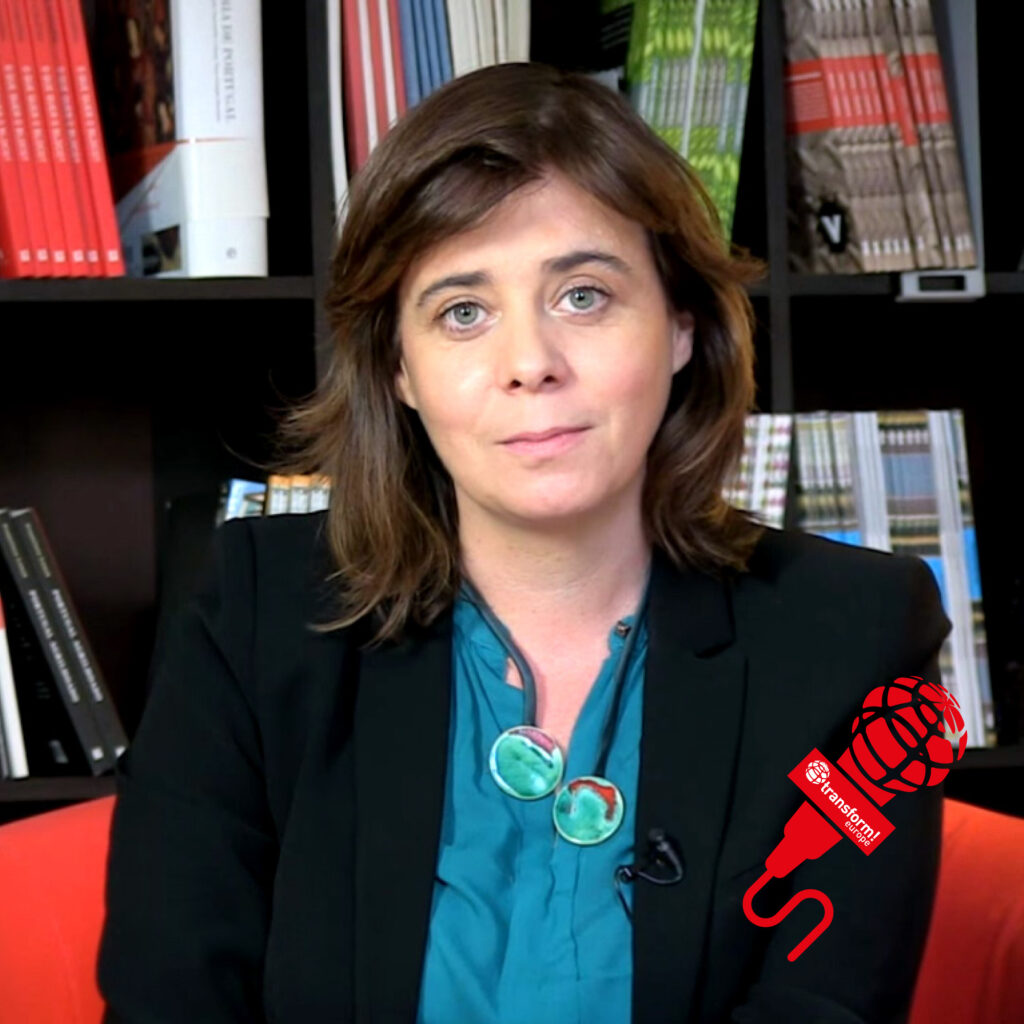Watch the full video with our guest Catarina Martins, National Coordinator of the Portuguese party Bloco de Esquerda (Left Bloc).
The Corona-virus has hit the EU unprepared, but in different ways and with different effects depending on the countries. Most tragic were the effects on those countries whose healthcare and social systems have been emaciated by decades of austerity policies. Thus, the pandemic has increased inequalities not only inside the states but also between the Member States of the EU. This presents the parties of the radical left with a challenge and calls for a re-examination of their strategies.
To watch the full video in Portuguese, click here.
Interviewee
Catarina Martins, Linguist who early started to be involved in cultural life and movements, as actress, co-founder and leader of theatre companies as well as professional associations. In 2009 Catarina Martins was elected as Bloco’s MP for the first time and in 2012 becomes Bloco de Esquerda’s Coordinator. It is during Catarina Martins leadership that Bloco de Esquerda has increased its parliamentary representation and political relevance. Since 2015, Bloco de Esquerda has grown from a young and small party founded in 1999 to becoming the third political force in Portugal and one of the main subjects in the European socialist left.
———————————————
The events will be interactive – after an initial interview the audience will have an opportunity to ask questions of our guest.
The main focus of all discussions will be the impact of the pandemic on the economic, social, political, and cultural life of particular countries. We have seen that the EU’s failure to address the health crisis and provide support to the most affected states has changed the way the Union is perceived in parts of Europe. To what extent and with what consequences does this apply to the countries whose parties our interviewees represent? How can the left cope with the economic and social crisis and the recession that is very likely to come in its wake? How do the left parties connect their national strategies to global problems, in particular the influx of refugees and the answers urgently required by the global environmental crisis.
